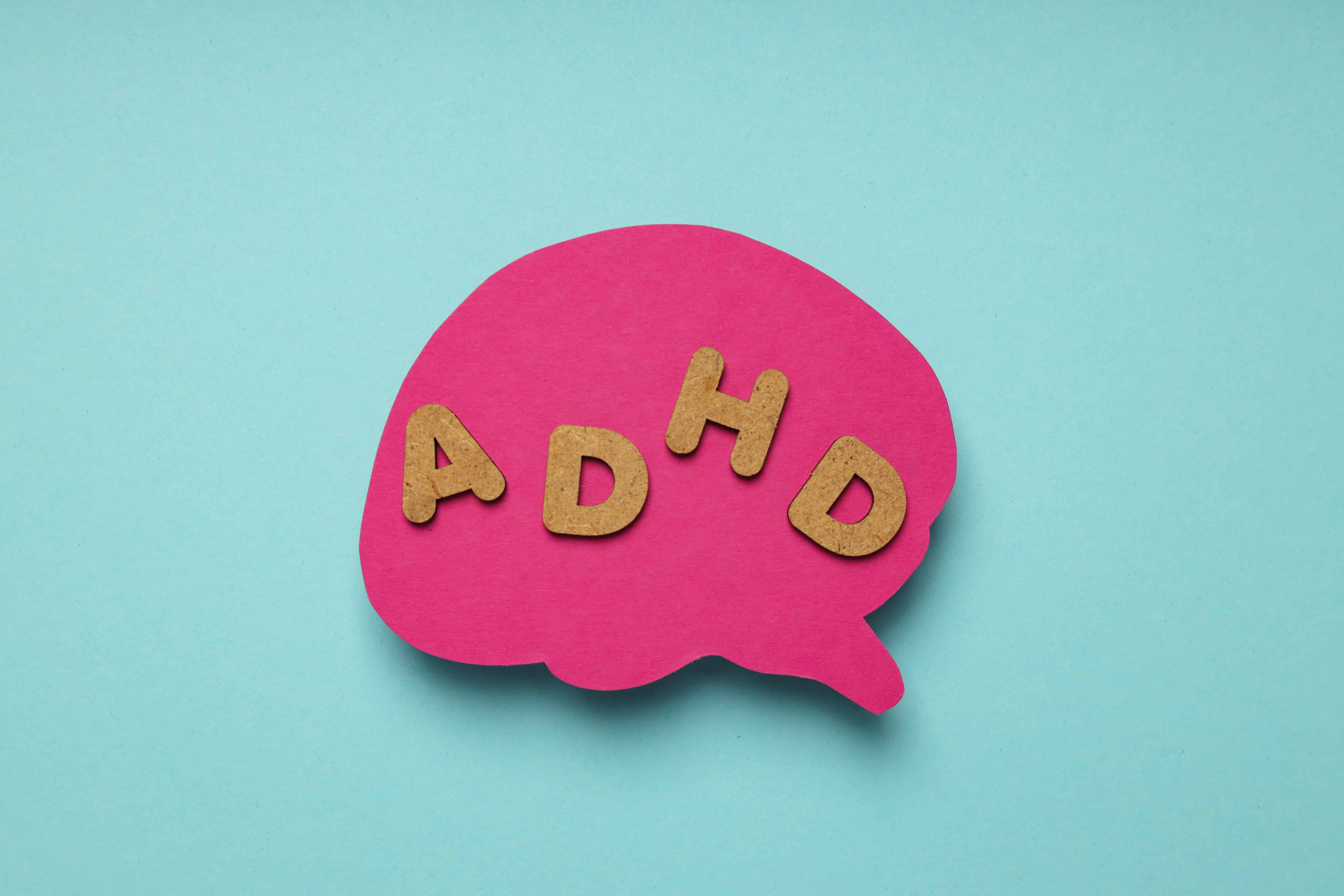Are you dealing with constant mood swings and unsure of the cause? Let’s shed some light on this issue. Mood disorders are mental health conditions that primarily affect a person’s mood. They’re more than just passing moments of sadness or bursts of joy. These disorders persist over time and can greatly impact a person’s life quality.
At Resilient Mind Counseling, we believe understanding is key to tackling mood disorders. Let’s delve into what these disorders are, their impact, and the significance of professional help. We’ll also share tips to manage your mood and highlight the role of positivity in this journey.

What are Mood Disorders?
Mood disorders are severe mental health conditions that greatly impact a person’s emotional state. They include various forms of depression and bipolar disorders. While they can affect anyone, children, teens, and adults may experience different symptoms. These disorders are not just fleeting feelings of sadness or low mood. They’re intense, long-lasting, and more challenging to handle. Mood disorders can disrupt a person’s interest in family, work, or community activities, making them a serious concern.
The Most Common Types of Mood Disorders
There are several types of mood disorders, each with unique symptoms and treatment options. Here are some of the most common types:
- Major Depressive Disorder: Characterized by continuous sadness, hopelessness, and a sense of helplessness with a loss of interest in daily activities.
- Bipolar Disorder: A mood disorder characterized by episodes of depression and mania or hypomania.
- Seasonal Affective Disorder (SAD): A mood disorder that occurs in autumn and winter when there is less daylight.
- Persistent Depressive Disorder: Also known as dysthymia, it is characterized by constant feelings of a poor mood and a lack of enthusiasm for regular tasks.
- Cyclothymic Disorder: This mood disorder is characterized by episodes of hypomania and mild depression.
Causes and Risk Factors of Mood Disorders
Identifying the exact cause of mood disorders can be complex as it often involves an interplay of several factors. They are likely caused by an imbalance of brain chemicals. Life events, like stressful life changes, can also lead to a depressed mood. Moreover, mood disorders tend to run in families, indicating a potential genetic link.
Individuals who have a parent with a mood disorder have a greater chance of having a mood disorder. Other risk factors include stressful life events like losing a job, getting divorced, losing a loved one, or financial troubles. It’s pertinent to note that the risk of depression in women is nearly twice as high as it is for men.
Symptoms and Diagnosis of Mood Disorders
Symptoms of mood disorders can vary greatly depending on the type of disorder and the individual’s age. However, some common symptoms include feelings of sadness, hopelessness, low self-esteem, guilt, and a lack of interest in normal activities. Changes in sleep patterns, appetite, and energy levels, as well as difficulty concentrating and making decisions, are also common.
Diagnosing mood disorders can be challenging, especially in children, as they might not always express how they feel. However, recognizing these symptoms and getting a professional diagnosis are crucial in managing mood disorders effectively. At Resilient Mind Counseling, we are committed to providing comprehensive mental health care to help individuals understand and manage their mood disorders effectively.
The Impact of Mood Disorders on Daily Life
Mood disorders, including depression and bipolar disorder, can significantly impact an individual’s everyday life. This impact extends beyond the person experiencing the mood disorder, affecting their relationships, work, and even increasing the risk of suicide. It’s essential to understand these implications to seek help when needed and to empathize with those experiencing these challenges.
How Mood Disorders Affect Relationships and Work
Mood disorders can profoundly affect personal relationships. When a person is struggling with a mood disorder, they may experience persistent feelings of sadness, hopelessness, or irritability, which can strain relationships with loved ones. They might also lose interest in activities they used to enjoy, further distancing them from their social circles.
At work, mood disorders can also present unique challenges. Individuals might find it hard to concentrate, leading to decreased productivity. They might also feel constantly tired, which can affect their performance and attendance. Moreover, the stigma associated with mental health can also create a barrier in the workplace, making it difficult for individuals to seek support.
The Connection Between Mood Disorders and Suicide
The risk of suicide is significantly higher for those battling severe mood disorders, especially if substance abuse is involved. Any suicidal thoughts should be taken seriously. If you or someone you love is considering suicide, get help immediately. In the U.S., you can dial or text 988 to connect with the 988 Suicide & Crisis Lifeline, available 24/7.
At Resilient Mind Counseling, we understand the profound impact mood disorders can have on a person’s life. We are dedicated to providing compassionate, comprehensive care to help individuals navigate these challenges and improve their quality of life. You’re not alone, and help is available.
The Importance of Seeking Help for Mood Disorders
Living with a mood disorder can feel overwhelming. But remember, mood disorders are treatable, and early intervention can make a significant difference in recovery and quality of life. With the right help, you can manage your symptoms and live a fulfilling life.
When to Seek Professional Help
If you’re experiencing symptoms of a mood disorder, don’t hesitate to seek help. Symptoms may include continuous sadness, hopelessness, and a sense of helplessness—loss of interest in daily activities, changes in appetite and sleep, fatigue, and difficulty concentrating. It’s essential to reach out to a healthcare provider if you or your loved ones notice these signs.
Seeking help for mental health issues is a sign of strength, not a sign of weakness. You’re taking a brave step towards better health and well-being.
The Role of Medical and Mental Health Professionals in Diagnosis and Treatment
Early intervention and treatment can decrease the disruptions caused by mood disorders in your life. But who should you turn to for help?
A mental health professional, such as a psychologist or psychiatrist, is usually the first point of contact. They can conduct an interview or survey, asking about your symptoms, sleeping and eating habits, and other behaviors. These professionals use specific criteria based on the Diagnostic and Statistical Manual of Mental Disorders to diagnose mood disorders.
Treatment for mood disorders often involves a combination of medication and psychotherapy, also known as talk therapy. These treatments aim to help you identify and change unhealthy emotions, thoughts, and behaviors.
At Resilient Mind Counseling, our team of trained and licensed mental health professionals is ready to provide support, education, and guidance to help you navigate your journey to recovery.
There’s no shame in seeking help. Early intervention can significantly improve your prognosis and help you lead a healthy and fulfilling life. If you need assistance, don’t hesitate to reach out to us or to a mental health professional in your community.
Treatment Options for Mood Disorders
In the journey to overcome mood disorders, several effective treatment options are available. These can be broadly classified into traditional methods like medication and psychotherapy, and alternative therapies.
Medication and Psychotherapy
Mood disorders are medical conditions, and like other medical conditions, they often respond well to appropriate medication. Antidepressants and mood stabilizers are commonly used, especially when combined with psychotherapy. In fact, this combination has shown to work very well in the treatment of depression.
Psychotherapy, on the other hand, is a form of counseling that helps you understand and manage your mood disorder. It involves talking about your condition and related issues with a mental health professional. Common forms include cognitive-behavioral therapy and interpersonal therapy, which focus on changing distorted views of oneself and improving relationships and coping skills.
Alternative Therapies for Mood Disorders
In addition to medication and psychotherapy, alternative therapies have also shown promise in managing mood disorders. Light therapy, for example, is particularly effective for Seasonal Affective Disorder (SAD), a type of mood disorder that occurs in autumn and winter due to diminished daylight.
Regular exercise is another potent mood booster. It releases endorphins, our body’s natural mood-enhancing chemicals, which can help combat feelings of sadness or depression.
Self-care and relaxation techniques like meditation, journaling, and aromatherapy can also play a crucial role in managing mood disorders. These activities promote relaxation, reduce stress, and help maintain mental health.
At Resilient Mind Counseling, we understand that each person is unique, and so is their journey to overcome mood disorders. We provide personalized treatment plans that incorporate a combination of these therapies to effectively manage mood disorders and improve overall quality of life.
Your journey towards overcoming mood disorders may seem intimidating, but remember, you do not have to walk this path alone. We are here to provide compassionate and inclusive therapy that addresses your unique needs and backgrounds.
The Power of Positivity in Overcoming Mood Disorders
The journey towards recovery from a mood disorder may not always be smooth, but one powerful tool that can help along the way is positivity. By harnessing the power of positive thinking, you can enhance your mental health and improve your overall quality of life.
Understanding the Role of Positive Thinking in Mental Health
Positive thinking plays a crucial role in mental health. It’s not about ignoring the negative aspects of life or glossing over your struggles; instead, it’s about approaching these hardships from a more hopeful and productive perspective.
Maintaining an upbeat outlook helps manage stress and boosts your physical state. It fosters resilience, aiding in overcoming challenges and focusing on long-term objectives. Positivity also encourages happiness and wellness, providing a shield against feelings of sadness and helplessness, common symptoms of mood disorders.
How to Cultivate a Positive Mindset
Cultivating a positive mindset when dealing with a mood disorder may seem challenging, but it’s definitely possible. Here are some strategies that can help:
Focus on the present: Practice mindfulness, a technique that encourages living in the present moment rather than dwelling on past regrets or future worries.
Practice gratitude: Make a habit of recognizing and appreciating the good things in your life. This can help shift your focus from negative thoughts and feelings to positive ones.
Surround yourself with positivity: Spend time with positive, supportive people who can uplift your spirits and encourage your recovery journey.
Take care of your physical health: Regular physical activity, a balanced diet, and adequate sleep can enhance your mood and energy levels, promoting a more positive outlook.
Seek professional help: Mental health professionals, like us at Resilient Mind Counseling, can provide you with the tools and strategies to cultivate a positive mindset and manage your mood disorder effectively.
It’s okay to have bad days. The goal isn’t to be positive all the time, but to strive for a generally optimistic outlook that can support your mental health. At Resilient Mind Counseling, we believe in the power of positivity and its role in overcoming mood disorders. We are here to guide and support you every step of the way.
10 Tips for Overcoming Mood Disorders
Tip 1: Practice Mindfulness and Meditation
Engage in mindfulness and meditation – activities that center your thoughts and emotions. They can help you maintain a positive outlook, reduce stress, and manage the symptoms of your mood disorder.
Tip 2: Maintain a Healthy Lifestyle
A healthy lifestyle is critical for managing mood disorders. This includes a balanced diet and regular physical activity. A healthy body can support a healthy mind.
Tip 3: Stay Connected with Loved Ones
Isolation can exacerbate symptoms of mood disorders. Reach out to friends and family for support. Their understanding and companionship can provide comfort and help keep negative thoughts at bay.
Tip 4: Seek Professional Help Early
If you’re experiencing persistent sadness or other symptoms of mood disorders, don’t hesitate to seek professional help. Early intervention can reduce the severity of symptoms and improve your quality of life.
Tip 5: Follow a Regular Sleep Schedule
Sleep is essential for mental health. Try to establish a regular sleep schedule. Lack of sleep can worsen mood disorders.
Tip 6: Engage in Regular Physical Activity
Exercise releases endorphins – chemicals that can boost your mood. Aim for at least 30 minutes of exercise three to five times a week.
Tip 7: Limit Alcohol and Avoid Illicit Substances
Alcohol and illicit substances can interfere with medications and worsen mood disorders. It’s best to limit alcohol and avoid illicit substances.
Tip 8: Practice Self-Care and Stress Management Techniques
Prioritize activities that promote relaxation and joy, such as reading, taking a bath, or walking in nature. These self-care practices can help manage stress and keep your mood stable.
Tip 9: Join a Support Group
Support groups provide a safe space to share experiences and learn from others who are dealing with similar issues. You’re not alone – connect with others who understand what you’re going through.
Tip 10: Stay Committed to Your Treatment Plan
Consistency is key in managing mood disorders. Whether it involves medication, therapy, or lifestyle changes, stick to your treatment plan. We at Resilient Mind Counseling are here to support you throughout this journey.
Overcoming mood disorders is not a straightforward path, but with the right strategies and support, you can manage your symptoms and lead a fulfilling life. At Resilient Mind Counseling, we’re committed to helping you navigate this journey and find the resilience within you.
The Role of Resilient Mind Counseling in Overcoming Mood Disorders
When it comes to managing a mood disorder, professional help can make a significant difference. At Resilient Mind Counseling, we are dedicated to your wellbeing and are equipped with the expertise and resources to guide you on the path to recovery.
How Resilient Mind Counseling Can Help
At Resilient Mind Counseling, our skilled therapists offer a space where you can discuss your mood disorder openly. Our goal is to uncover your strengths, help manage stress, and teach effective coping methods.
Our therapies can be particularly beneficial for managing symptoms of mood disorders. Cognitive-behavioral therapy, for instance, is an effective method that helps in changing distorted views of oneself and the environment around. This can often lead to significant improvements in mood and overall quality of life.
Medication can also play a crucial role in managing mood disorders. When combined with psychotherapy, antidepressant and mood-stabilizing medicines have been shown to effectively treat conditions like depression.
It’s essential to reach out for help if you’re experiencing symptoms of a mood disorder. Early diagnosis and treatment can reduce the severity of symptoms and improve your quality of life.
The Unique Approach of Resilient Mind Counseling
At Resilient Mind Counseling, we believe in a client-centered approach. This means that your needs and preferences are at the forefront of your care plan. We understand that each person’s journey with a mood disorder is unique, and so are the treatment strategies needed for recovery.
We focus on building a strong therapeutic relationship with our clients, emphasizing respect, empathy, and understanding. This approach allows us to tailor our treatment plans to align with your specific needs and goals.
In addition, we leverage evidence-based strategies to empower you. This includes teaching you how to take control of your thoughts, emotions, and behaviors, leading to improved mental wellbeing and emotional resilience.
Our goal is not just to help you manage your symptoms but to equip you with the skills and knowledge to lead a healthier, happier life. So whether you’re dealing with depression, anxiety, or any other mood disorder, know that help is available, and we are here to support you.
At Resilient Mind Counseling, we understand that the journey to overcoming mood disorders can be challenging. But with the right support and tools, you can navigate this journey successfully. It’s okay to ask for help, and we’re here for you every step of the way.
Conclusion
Overcoming mood disorders is not a race, but a journey, one that requires patience, understanding, and the right kind of support. At Resilient Mind Counseling, we are committed to providing that support, helping you to manage mood disorders and improve your overall quality of life.
The road to recovery may be challenging, but remember, you are not alone in this journey. Mood disorders are real medical disorders and are more common than you might think. According to the World Health Organization, over 264 million people worldwide live with depression, bipolar disorder, or other mood disorders.
Effective treatments for mood disorders exist. Medications, psychotherapy, and other methods like electroconvulsive therapy can control symptoms and boost wellbeing, allowing many to lead balanced, healthy lives.
At the end of the day, your mental health is just as important as your physical health, and taking steps to manage a mood disorder is a sign of strength, not weakness. That early diagnosis and treatment can reduce the severity of symptoms and enhance your normal growth and development.
We at Resilient Mind Counseling understand that each person’s journey is unique, and we tailor our approach to fit your specific needs. Whether it’s through individual counseling, couples therapy, or psychiatric services, we’re here to provide you with the tools and support you need on your path to better mental health.
You don’t have to navigate this journey alone. It’s okay to ask for help. We welcome you to reach out to us at Resilient Mind Counseling and start your journey towards overcoming mood disorders today.
For more information and resources, explore our therapy services and online therapy options at Resilient Mind Counseling.

The journey to overcoming mood disorders is not a destination but a path towards better mental health. With the right support, patience, and dedication, you can overcome mood disorders and live a happier, healthier life.















